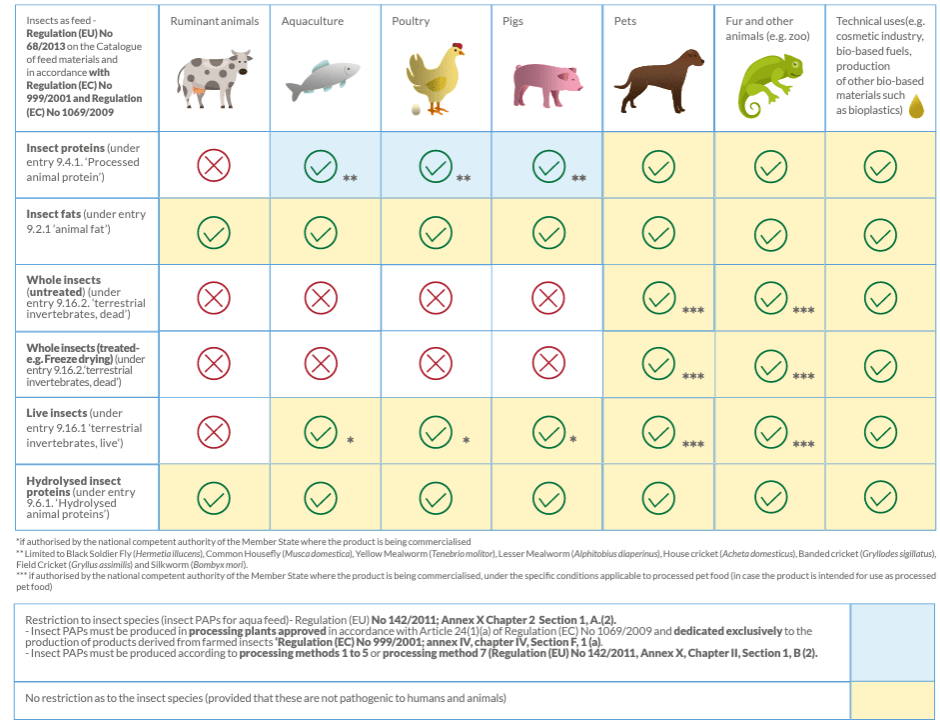 The importance of insects in a chicken's diet
The importance of insects in a chicken's diet
Insects are an important part of a chicken's diet, giving them essential nutrients that help them stay healthy. Adding live insects to their meals gives hens a balanced diet that mirrors what they would eat naturally. This not only keeps the hens healthy but also improves the quality of the eggs they lay. The nutrients from the insects make the eggs tastier and more nutritious. Feeding chickens in this natural way benefits both the hens and the consumers who eat the eggs.
EU legislation and clarifications
The recent changes in EU rules about using live insects in animal feed are a big step forward. Previously, it was unclear if live insects could be used, but the PAFF Committee clarified in February 2024 that they are allowed, except for ruminants. This change matches the natural diets of animals like chickens and ensures safety and quality standards are met. It promotes healthier animals and better products, supporting sustainable and innovative farming practices. This approach benefits both animals and consumers.
Guidance from IPIFF
Besides the EU regulations, the International Platform of Insects for Food and Feed (IPIFF) offers vital guidance for farmers and producers on using live insects in animal feed. Their detailed Guide on Good Hygiene Practices outlines the EU's requirements and provides practical advice on safely and sustainably incorporating insects into feed. By following IPIFF's guidelines, farmers can ensure their practices benefit livestock health and product quality. This resource helps farmers navigate regulations and make informed decisions for the well-being of their animals.

Image credit: IPIFF.
Informed choices for consumers
For consumers wanting to make informed food choices and support animal welfare, IPIFF's Guide on Good Hygiene Practices is essential. By choosing eggs from hens fed live insects, consumers help improve hen welfare and get high-quality, nutritious eggs that reflect the hens' natural diet. This choice benefits both the hens and the consumers, promoting a sustainable and ethical approach to food consumption.
Environmental and ethical benefits
Consumers choosing eggs from hens fed a diet rich in live insects support ethical farming practices and reduce their carbon footprint. By prioritizing the well-being of the hens and promoting sustainable food choices, consumers contribute to animal welfare and environmental initiatives.
Adding live insects to a chicken's diet benefits their health and well-being, and enhances the nutritional value of the eggs they produce. With recent EU legislation supporting the use of live insects in animal feed, farmers can provide a natural and nutritious diet for their livestock. Consumers can make informed choices that support ethical farming practices and sustainability by choosing eggs from hens fed a diet rich in live insects. This holistic approach promotes animal welfare and sustainable food choices. To learn more, explore resources like IPIFF's Guide on Good Hygiene Practices.
Contact us for details on legislation or tips on improving your production facility with our Rotoshifter technology.
References: IPIFF, Live insects in animal feed (23-05-2024)

